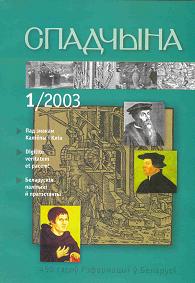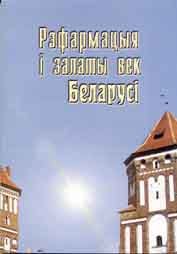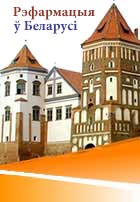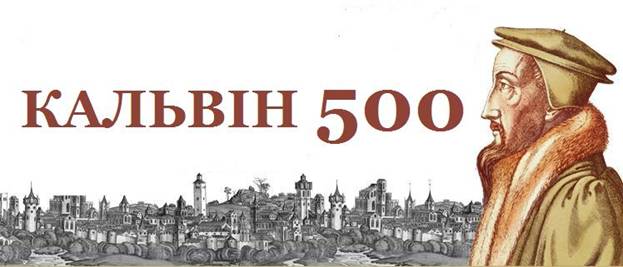 |
Belarus is Eastern European country that received its independence after the collapse of the USSR. Population of Belarus is 10 millions, capital city is Minsk.
The first written document of the Belarusian statehood goes far back as 980 AD when Prince Rahvalod began his reign on Polatsk lands. The young, fast growing state made close trade ties with German (Hansa) cities, with Scandinavia, neighboring eastern and southern principalities.
From the 13th till the end of the 18th century Belarus was the center of a medieval state - Grand Duchy of Litva. The Grand Duchy of Litva was one of the largest, most powerful and flourishing states in medieval Eastern Europe. The state language in the Grand Duchy of Litva was Belarusian.
In the 16th century the ideas of Reformation were adopted by the Belarusian elite. That have resulted in such an immense rise of the country. The 16th century are considered to be the "Golden Age" of Belarus. Belarusian artists, painters, and architects were in demand all over Europe; written Belarusian was a very highly developed language.
In the beginning of the 16th century, with the spread of book-printing, the first books were printed in the Belarusian language. In 1517 the first Belarusian Bible was translated and printed in Prague by Dr. Francysk Skaryna from Polatsk; thus Belarusian became the second Slavic language after Czech in which the Bible was printed.
Many educated people of Belarus believed that the Protestant church may serve as a shield for Belarusian development. Special activity in promoting the Reformation in Belarus was performed by prince Mikalai Radzivil, the Black. He founded 163 Calvinist (Presbyterian) parishes, schools, and gymnasiums in Belarus, wishing to turn the whole country to Calvinism.
In 1569 the Grand Duchy of Litva and the Polish Kingdom established a political union according to which the Litva-Poland confederation -- Recz Pospolita -- emerged. Soon after that Polish Jesuits expanded their activities in the country aiming at strengthening Polish influence. The Jesuits worked it out in all branches of culture founding schools, universities, and monasteries. The Reformation moved all people's thoughts, customs, and ideals; new support was needed, and the Jesuits turned out to be stronger in this battle for human minds. They managed to win the Protestant moods in Belarus and turned to Catholicism a big part of population. The treason of Reformation by the Belarusian elite became the reason of the permanent crisis, which Belarusian nation cannot still go out from.
As a result of three divisions of Recz Pospolita in 1772, 1793 and 1795 between three empires - Russia, Austria and Prussia - the Belarusian lands were incorporated into the Russian Empire. So the third division of Recz Pospolita in 1795 practically checked the development of Belarusan statehood for more than 100 years. Belarus became a Central European colony of Russia. Since the 19th century it was known as the North-Western Region of the Russian Empire and the Belarusian people were assimilated into it by force.
The renewal of the statehood became possible only after the fall of the Russian monarchy towards the end of World War I in February 1917, when the Belarusian national organizations became more active.
On the 25th of March 1918 the All-Belarusian Congress Executive Committee declared the creation of the Belarusian People's Republic.
On the 30th of December 1922 the Communist governments of Belarus, Russia, Ukraine and Caucasus created the Union of Soviet Socialist Republics which included the major part of the former Russian Empire. Since that time on the territory of Belarus as well as in the whole of the Soviet Union a severe communist dictatorship had been established which existed till 1990 when the first more or less democratic elections were held in Belarus. Belarus as well as the other Soviet republics of the former USSR had gone through all the stages of the creation of mythical communism and suffered enormous cultural, spiritual and human losses. During the construction of communism there were destroyed practically all the churches and religious institutions, private property was liquidated a lot of industrious, enterprising, educated people were repressed.
After the collapse of the Soviet Union Belarus became independent state.
|
 |












